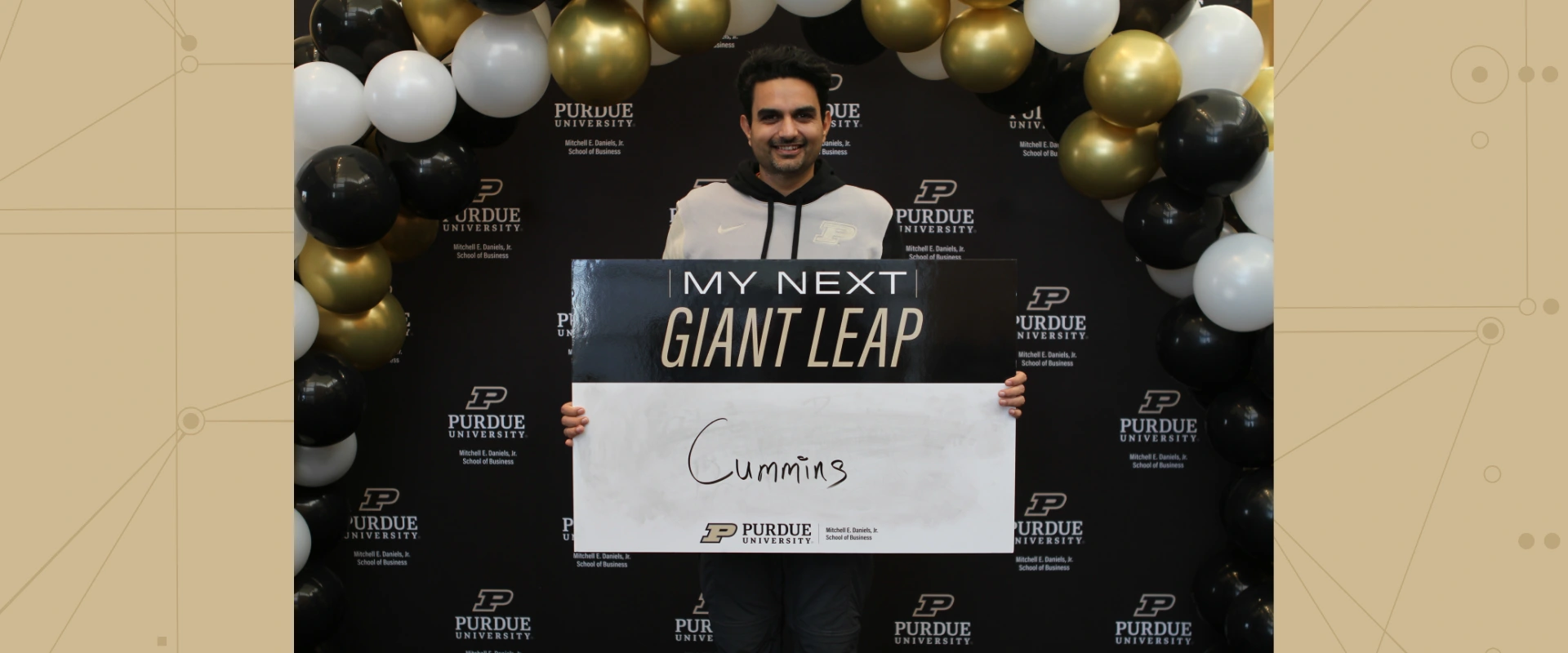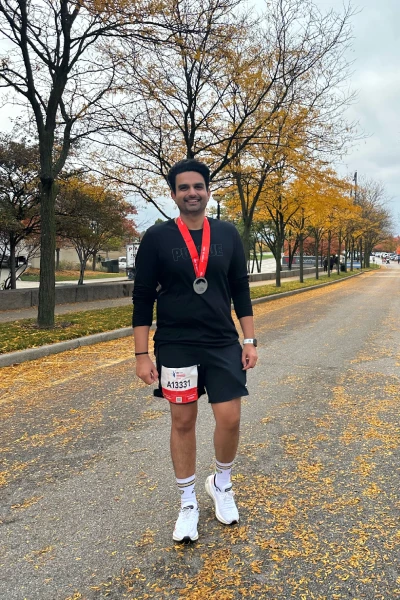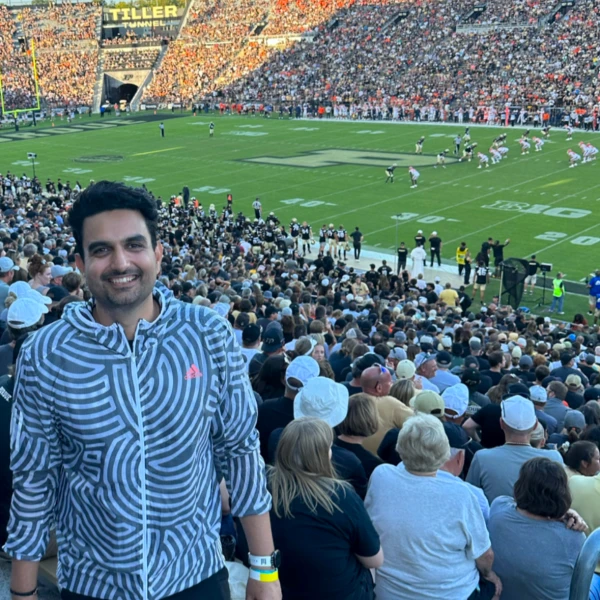
06-27-2025
During the COVID-19 pandemic, Takdir Sheokand, a mechanical engineer from India, found himself at the crossroads. He could continue his comfortable job close to his loved ones or pursue a journey to understand the global intricacies of the supply chain. As a graduate of the Master of Global Supply Chain Management program at the Mitch Daniels School of Business, Takdir looks forward to leading improvements in the global supply chain.

Back in India, with experiences as a purchasing manager with Ashok Leyland and later as a materials manager for Eureka Forbes, Takdir managed material requirements at the plant and facilitated supply chain coordination across domestic suppliers. Along with his professional career, he was close to his family and had a supportive community around him.
Takdir was raised in a household where both of his parents lived and worked in the same city for their entire lives. The new feeling of uncertainty made him question the possibility of achieving his goals. Starting new would mean leaving his career and moving far from his family.
In his role as materials manager, Takdir saw the challenges in global supply chains. During the COVID-19 pandemic, supply chain operations were dramatically affected. Shortages of materials led to a scarcity among businesses, resulting in greater competition. Long-standing contracts also faced risk, while prolonged wait times disrupted the supply chain of necessary materials.
The difficult time that Takdir witnessed sparked curiosity to understand more about the supply chain industry. Wanting to understand how to move from reactive operations to proactive strategies, he aspired to learn about the global supply chain. Mainly doing work domestically, Takdir wanted broad exposure to sourcing strategies, global markets, and the complexities of international logistics and supplier relationships. Takdir was ready to consider the opportunities of a master’s degree.
When choosing to further his education, Takdir had difficult decisions to consider. He prioritized location, curriculum and structure of a program. With roughly six years of work experience, he was eager to find a program that would teach and challenge him. In spite of advice to apply to over 10 schools, Takdir only considered Purdue and one other university. Purdue provided a specialized curriculum that facilitated deeper conversations among students and professors while adhering to the timeline and course sections he desired.
Takdir struggled with self-hesitation. Initially, he hoped not to be accepted at Purdue to avoid upheaval. He’d have to take the risk to continue his comfortable career or embrace the change he had internally wanted. Accepted into Purdue, Takdir took the giant leap to join the graduate program.


During his 18-month program, Takdir made the most of his time, soaking in the Purdue experience. He engaged with student life by becoming a teaching assistant (TA). Takdir also worked as a research assistant (RA) for multiple professors, including projects with Clinical Professor of Management Amy David.
In addition, he took full advantage of opportunities outside the classroom. Working at Starbucks, he had the chance to interact with students around campus. He created study groups with memories of late-night studying across various campus buildings. Takdir also enjoyed utilizing the Co-Rec, running half-marathons, and working with International Student Services (ISS).
Each experience helped Takdir understand the impact his opportunity had on the decision to attend Purdue. By showcasing his determination and drive in class, Takdir was recommended for his experiential learning project with Dr. David and later for the TA and RA positions. Every opening led to furthering his industry exposure and fostering connections with faculty.
Takdir’s Purdue involvements paid off. He thrived academically because of his balanced approach. His helpful and hardworking mentality earned him induction into the Beta Gamma Sigma Honor Society, a recognition given to the top 20% of students in accredited business programs.
Success for Takdir arrived early when he landed an internship early on in his graduate program. The internship with Cummins gained him access to the possibilities of global sourcing, which provided immediate access to industry experience. During the internship, Takdir embraced initiative. Mentored by his outstanding leader at Cummins and supported by an exceptional team, he took on greater projects and sought new responsibilities, which contributed to receiving a full-time offer and a quick promotion.
Now working as a senior sourcing specialist at Cummins, he manages both current production and strategic sourcing for stamped metal components. With pricing ever-changing, Takdir handles commodity adjustments, supplier negotiation and agreements, and long-term strategy in a volatile commodities market. He also supports large-scale strategic initiatives that incorporate environmental regulations and global market dynamics.
Looking back on the decision to continue education and his journey at Purdue, Takdir encourages others not to limit themselves but instead to embrace every opportunity. He advises students not to stress over their grades and to focus on engaging with others. Whether it is academics, extracurricular or social events, every experience can lead to the next big thing. He also emphasizes the importance of balancing technical abilities with a team-oriented mindset.
Takdir’s journey is an example of learning to be comfortable with being uncomfortable. From being a local operations manager to moving across the world and becoming a global sourcing leader, Takdir brought his whole self to help him reach new potential.
The MS in Global Supply Chain Management program challenges professionals to step beyond the familiar and emerge as global leaders.
If you would like to receive more information about pursuing a business master’s at the Mitch Daniels School of Business, please fill out the form and a program specialist will be in touch!